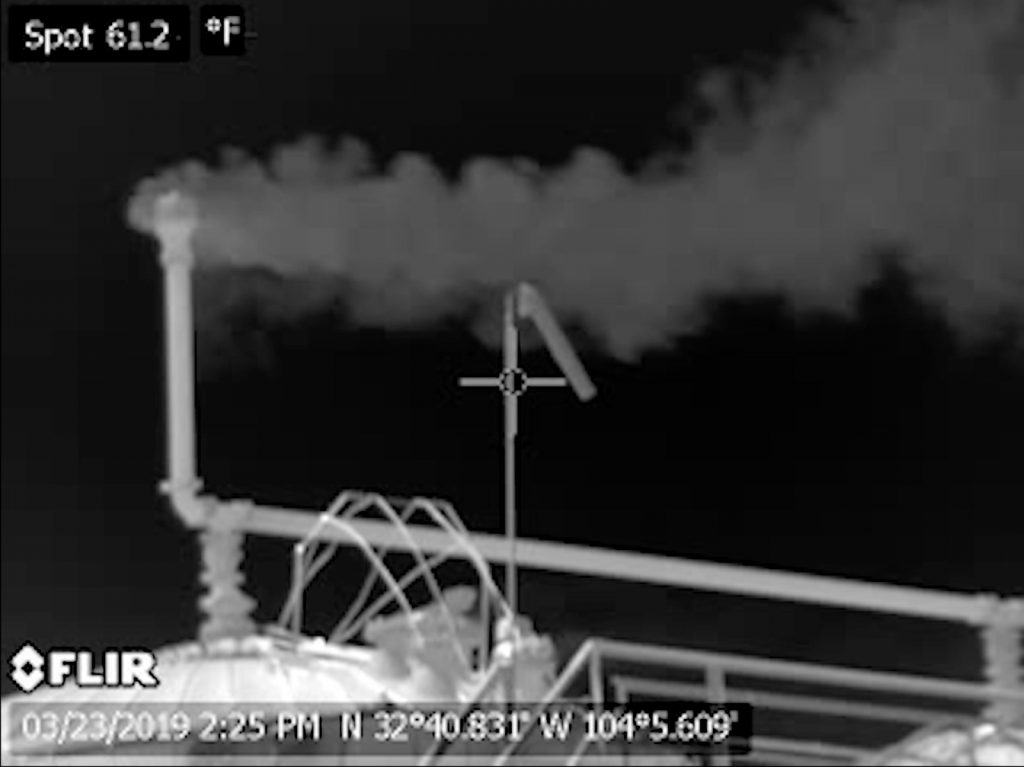Now that Occidental Petroleum has finalized its $38 billion takeover of Anadarko, Oxy must answer whether, in addition to assets and employees, it acquired Anadarko’s stated commitment to work with state regulators to move common sense, urgently needed rules to cut methane leaks and releases from industry operations.
Methane pollution is easily the most pressing issue facing the oil and gas industry today. If oil and gas methane emissions are not brought under control as impacts on health and climate worsen, the whole sector risks losing its social license to operate.
In Anadarko’s corporate statement on climate change that appeared on its website prior to its acquisition by Occidental Petroleum, the company said, “We are committed to working with governmental agencies and other stakeholders in developing sound public policy that promotes appropriate and effective regulations.” And, in 2014, Anadarko supported Colorado’s groundbreaking rules to cut methane pollution from oil and gas operations.
So, with immediate threats from the Trump administration against methane rules at the national and state level, the question of what Oxy does with Anadarko’s legacy of support for governmental climate policy is a big one.
To be clear, Anadarko is no saint when it comes to the environment.
Its partial ownership stake in the Deepwater Horizon project resulted in a civil fine of nearly $160 million. Its treatment of environmentalists, the use of intimidating surveillance, and distortion of the truth through the industry front group, ironically named Coloradans for Responsible Energy Development (CRED), has left Anadarko with a sordid history. And, just last year, six former high-ranking employees came forth to testify that Anadarko knowingly “put profits over safety, creating massive risks before a leaking company pipeline caused a fatal home explosion in Firestone in April 2017.”
But on the issue of methane pollution and support of government rulemaking efforts, Anadarko’s record glistens compared to Oxy’s.
Operators have known about the problem of methane leakage from oil and gas equipment for years. It has long been a practice to vent (READ: simply release) methane gas into the air to relieve pressure or get the methane out of the way in order to extract only oil from the underground deposit.
Only in the last decade, however, has the rest of the world begun to realize the scale and severity of the industry’s methane pollution troubles.
As it turns out, methane pollution is potentially a death sentence for the climate. In the near-term, it is 86 times more powerful at warming the atmosphere than carbon dioxide. Methane is responsible for approximately a quarter of the warming we’ve already experienced, and the oil and gas industry is the leading culprit for methane pollution in the U.S., according to the EPA.
Oil and gas operations also release other air toxins that are hazardous to human health. For instance, benzene is known to cause cancer, and volatile organic compounds contribute to the formation of smog that particularly impacts young and elderly people and those with asthma.
Anadarko and Occidental had a distinctly different response to this news.
For instance, Oxy owns around 2.5 million net acres in the Permian Basin, which stretches from southeastern New Mexico into Texas. Methane pollution in New Mexico’s Permian Basin is actually 5 times greater than what the industry reports to the EPA. Earthworks’ own staff has documented incidents of reckless methane pollution coming from Oxy equipment contributing to this problem.

But Oxy has yet to throw public support behind New Mexico Governor Lujan Grisham’s efforts to help the industry solve the methane problem that they have long struggled to address themselves. This is despite claiming a “commitment to environmental performance” and to leak detection and repair that the New Mexico state rule would require.
In Colorado, the state where Anadarko supported the most stringent standards for methane leak detection and repair in the country at that time, new rulemaking is taking place to address severe levels of ozone in the Denver metro area, among other things. Industry lobbyists like the Colorado Oil and Gas Association are trying to hype up fears like Chicken Little. Yet, Oxy has refused to take on the leadership role on regulations there that Anadarko once held.
On efforts by the Trump administration to repeal national methane standards, Royal Dutch Shell, BP, Equinor and ExxonMobil have all publicly and directly called for government regulation of oil and gas methane to address the problem and level the playing field. Oxy, on the other hand, has remained on the sidelines.
One way or another, Oxy can only dance around answering questions on oil and gas methane pollution for so long. Instead of waiting, they should act now, because its decision will ultimately be the single most important factor in determining whether it has just made a $38 billion investment into longer-term energy assets or far-too-soon climate liabilities.
Nathalie Eddy is Earthworks‘ Field Advocate for Colorado and New Mexico.



